- Overview
- Symptoms
- Causes & Risks
- Screening & Testing
- Diagnosis
- Treatment
- How HIV Affects the Body
- Opportunistic Infections
- Complications
- Living With
- Dating & Relationships
- Support & Resources
- Prevention
- Appointment Prep
- View Full Guide
A Visual Guide to HIV/AIDS

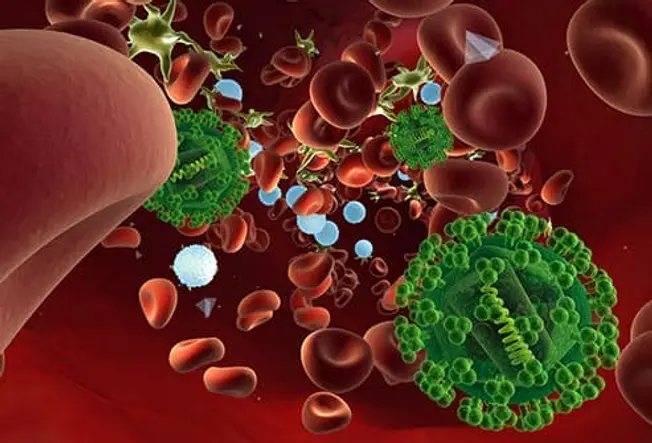
What Is HIV/AIDS?
HIV, human immunodeficiency virus, is a virus that attacks the immune system. AIDS, acquired immune deficiency syndrome, is the disease that it causes. There’s still no cure for HIV, but it is possible to control the virus with medication and avoid its spread.

Where It Came From
AIDS has its origins in African monkeys and apes. According to one widely accepted theory, HIV started as a disease affecting them. Later, the virus changed and was able to infect humans. A 2014 study suggests the disease crossed over to humans more than a century ago, became endemic in 1920s Congo, then traveled to Haiti in the 1960s, and to the United States later. The disease became widespread in the West in the 1980s.
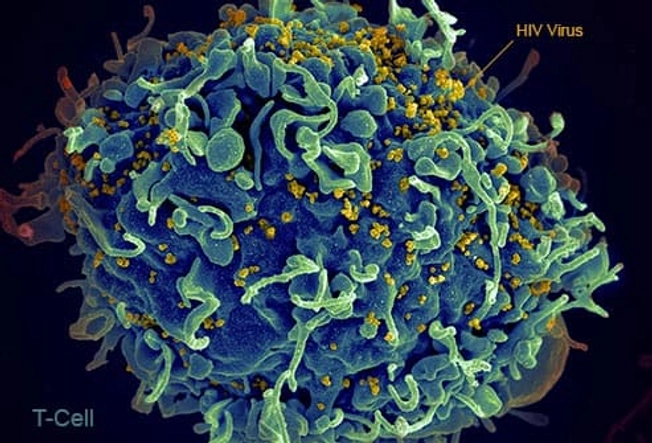
What It Attacks
White blood cells are your body’s protection against infection. HIV invades a certain kind of white blood cell, the CD4-positive T cell, and damages it. The virus then makes copies of itself and spreads throughout the body, infecting more T cells. Over time, healthy T cells go into decline while HIV-infected cells increase. This weakens the immune system and leads to AIDS.

How It Spreads
HIV is mainly spread through either sex or the use of needles. Only a few bodily fluids can transmit HIV:
- Blood
- Semen
- Pre-ejaculate (fluid released by the penis during arousal)
- Vaginal fluid
- Rectal mucus
- Breast milk
Even then, the fluid has to come into contact with a mucous membrane (like those in sex organs), damaged tissue, or the bloodstream.
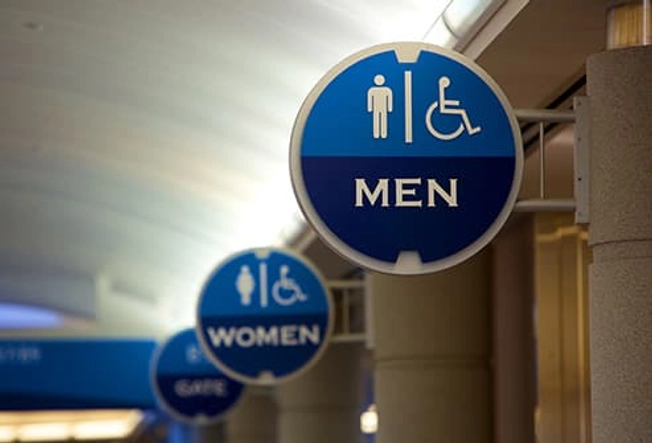
You Can’t Get It From a Toilet Seat
You can’t get HIV from a drinking fountain, toilet seat, or handshake. Or from food, even food handled by someone who is HIV-positive. You don’t get it from insect bites, either. Even closed-mouth kissing is fine. Why? The virus dies quickly outside the human body.
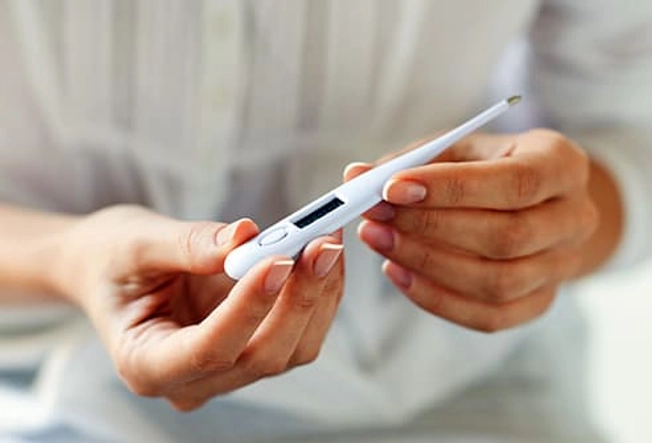
What Are the Early Symptoms?
Most people do not know when they acquired HIV. However, about one third of people report flu-like symptoms around the time they were infected. The early symptoms include:
- Headache
- Fever
- Fatigue
- Sore throat
- Swollen lymph nodes
You may also get a red rash that doesn’t itch.
These symptoms, which last up to a few weeks, mean your immune system is doing its job and fighting the virus. However, these symptoms can also be seen with other viral infections. If you develop these symptoms and have engaged in behavior that could put you at risk for HIV, you should consult your doctor and be tested.
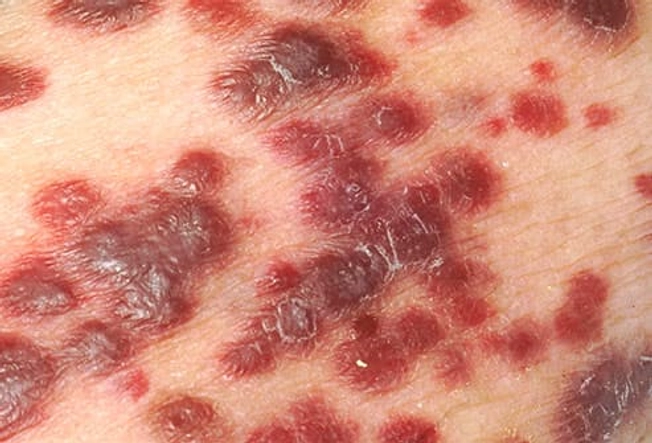
Symptoms of AIDS
HIV infection has three stages. As mentioned above, the first may involve flu-like symptoms, although most people report no symptoms at all. Then the virus appears to go dormant. This is the second stage, which can last as long as a decade. In the third stage, your levels of T-cells drop so low that you can develop life-threatening diseases. These include Kaposi’s sarcoma (a skin cancer), certain kinds of pneumonia, and other “opportunistic” infections. This third stage can be prevented by early treatment for HIV.

Who Gets HIV?
Anyone can. But HIV is most commonly found among men who have sex with men and among people who inject drugs. It can also pass from mothers to babies in their womb, or through breast milk, or from men to women through sex. As of June 2018, 1.2 million people in the United States were living with HIV. But 1 in 7 didn’t know it, according to AIDS.gov.
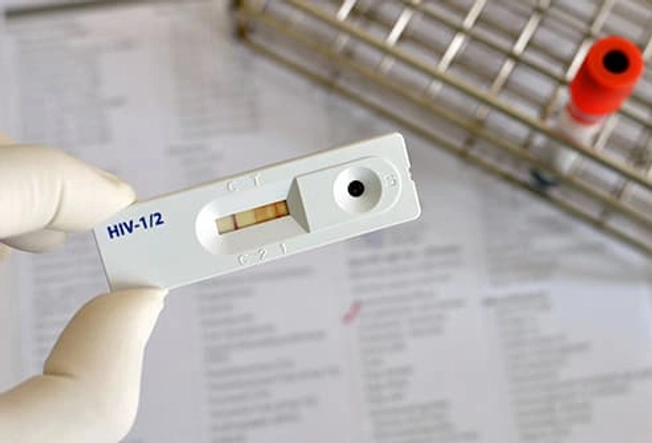
Should You Get Tested?
Men who have sex with men, persons who inject drugs, anyone who has sex with multiple partners, and persons with sexually-transmitted infections should all be tested for HIV, generally at least once a year. The CDC actually recommends that ALL persons in the United States between the ages of 13 and 64 be tested at least once. The simplest HIV tests use blood or saliva to look for antibodies that your immune system makes in response to HIV. Results are available in as little as 20 minutes.
If your first test shows that you don’t have HIV but you have recently engaged in high-risk behavior, experts recommend taking a follow-up test 3 months later because it can take up to that long for HIV antibodies to show up.
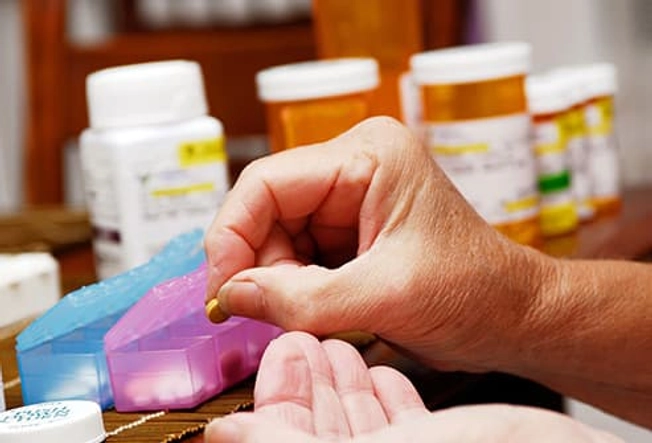
HIV/AIDS Treatments
Treatment options for HIV/AIDS have grown since the mid ‘90s, when HIV infection was the No. 1 cause of death for people aged 25-44. It’s now No. 9. If you are diagnosed with HIV, you should consult a doctor as soon as possible. All persons with HIV should be on HIV medicines. Originally called the “cocktail,” the men have evolved into ART, or antiretroviral therapy. The medications include six classes of drugs. People generally take two or more at a time, but they can be combined, and there are several one-pill-a-day regimens. Some block HIV from copying itself. Others prevent HIV from entering the T cell at all. Doctors tailor the plan to the person and their situation. Adhering to treatment can allow someone with HIV to obtain the same life expectancy as someone who is not infected.

Watch Out for Fake Remedies
You can’t treat HIV with industrial solvents, oxygen therapy, electricity, intravenous aloe vera, hot baths, or “wonder herbs.” In perhaps the most extreme case, some cultures believed having sex with a virgin female would cure HIV. The myth reportedly led to a number of rapes of young girls in South Africa. Apart from devastating the girls’ lives, they could well have become infected, too.

Taking Care of Yourself
HIV can lead to other illnesses and conditions, such as tuberculosis, diabetes, and depression. So take steps to stay healthy:
- Take your HIV medicines exactly as prescribed. Make sure to tell your doctor if you have problems with the medicines, like side effects, before you consider stopping them. Most people tolerate the newer medications very well.
- Eat a balanced diet of fruit, vegetables, some meat, fish, chicken, a bit of dairy, and a minimum of sugar and salt.
- Exercise.
- Get plenty of rest.
- Socialize. Good friends and good times can lift your mood.
- Keep up with your checkups.
- Talk to a counselor if you feel down or anxious.

If You Have HIV, Who Do You Tell?
HIV carries a stigma for some. If you’re HIV-positive, start with people you trust and those who may be affected by the illness:
- Your doctor.
- Supportive family members or friends.
- Your sex or needle-sharing partners. They may be at risk.
- Others with HIV, who may offer support.
In some states, not telling certain people is a crime. But it’s illegal for employers to discriminate based on HIV status.
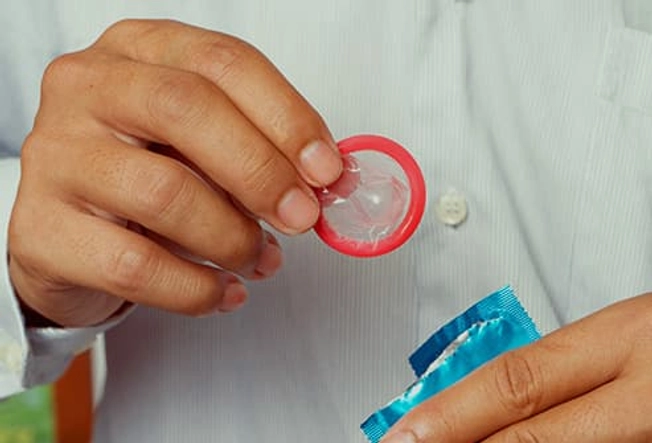
How to Protect Yourself If you Do Not Have HIV
When you have sex:
- Use condoms.
- Limit your number of sexual partners.
- Stick to less-risky forms of sex. You’re much less likely to get HIV from oral sex than vaginal sex or anal sex.
- Ask your doctor about preventive medicines.
- If you use drugs, always use clean needles. Sterile is best, and don’t share.
Also, if you feel you are at risk for getting HIV, you should get tested at least once a year.
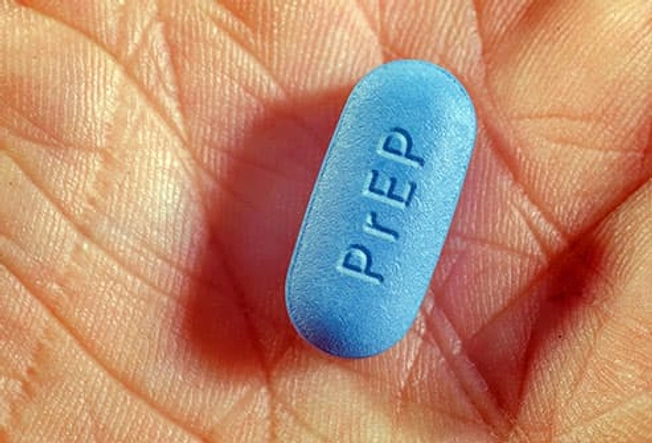
If You’re at High Risk
Treatment options for HIV/AIDS have grown since the mid ‘90s, when HIV infection was the No. 1 cause of death for people aged 25-44. (It’s now No. 9.) If you’re at high risk, you can take a medication combo known as PrEP to lower your chances of getting the virus. If you’ve been exposed, you can take medication in a process called PEP. If you do so within 72 hours and stick to the 28-day course, you may be able to prevent HIV.
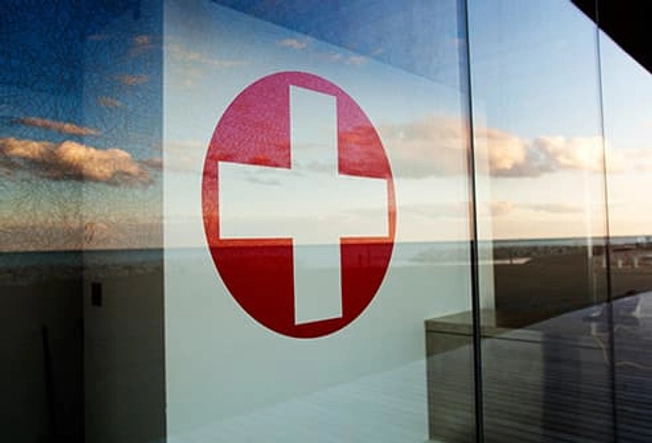
Help and Resources
There’s still no cure for HIV. But don’t be afraid to get checked, because if you need treatment, the sooner, the better. Studies show a dramatic increase in life expectancy for those who get early treatment and maintain their care.
The U.S. government offers many resources for people with HIV at aids.gov, ranging from places to get tested to uplifting stories of living with the virus. The CDC also offers valuable information on dealing with HIV, including testing options at gettested.cdc.gov or 800-CDC-INFO (800-232-4636).
IMAGES PROVIDED BY:
1) Getty Images
2) Thinkstock
3) Getty Images
4) Thinkstock
5) Thinkstock
6) Thinkstock
7) Thinkstock
8) Thinkstock
9) Getty Images
10) Thinkstock
11) Thinkstock
12) Thinkstock
13) Thinkstock
14) Thinkstock
15) Thinkstock
16) Thinkstock
SOURCES:
AIDS.gov: “What is HIV/AIDS?” “HIV Lifecycle,” “How Do You Get HIV or AIDS?” “Stages of HIV Infection,” “U.S. Statistics,” “Overview of HIV Treatments,” “Talking About Your Status: Co-Workers/Workplace,” “Do You Have to Tell?”
Faria, N. Science, published online Oct. 3, 2014.
NIH.gov: “How HIV Causes AIDS,” “Side Effects of HIV Medicines: HIV and Diabetes,” “Non-Nucleoside Reverse Transcriptase Inhibitor (NNRTI),” “Fusion Inhibitor.”
CDC.gov: “HIV Transmission,” “About HIV/AIDS,” “Testing,” “HIV Surveillance Report: Diagnoses of HIV Infection in the United States and Dependent Areas, 2014,” “PEP,” “PrEP,” “Condom Fact Sheet In Brief,” “Prevention.”
OwenClinic.UCSD.edu: “Skin and Complexion.”
KFF.org: “The HIV/AIDS Epidemic in the United States,” Apr. 7, 2014.
Amon, Joseph J. “Dangerous medicines: Unproven AIDS cures and counterfeit antiretroviral drugs,” Global Health, published online at NIH.gov, Feb. 27, 2008.
Meel, BL. “The myth of child rape as a cure for HIV/AIDS in Transkei: a case report,” Med Sci Law, published online at NIH.gov, Jan. 2003.
Avert.org: “Tuberculosis and HIV Co-Infection,” “Taking Care of Yourself When Living with HIV,” “Stigma, Discrimination and HIV.”
FDA, “Attacking AIDS with a 'Cocktail' Therapy: Drug Combo Sends Deaths Plummeting,” published online at NIH.gov, Jul. 1, 1999.
ACLU.org: “State Criminal Statutes on HIV Transmission.”
Positivespin.HIV.gov.